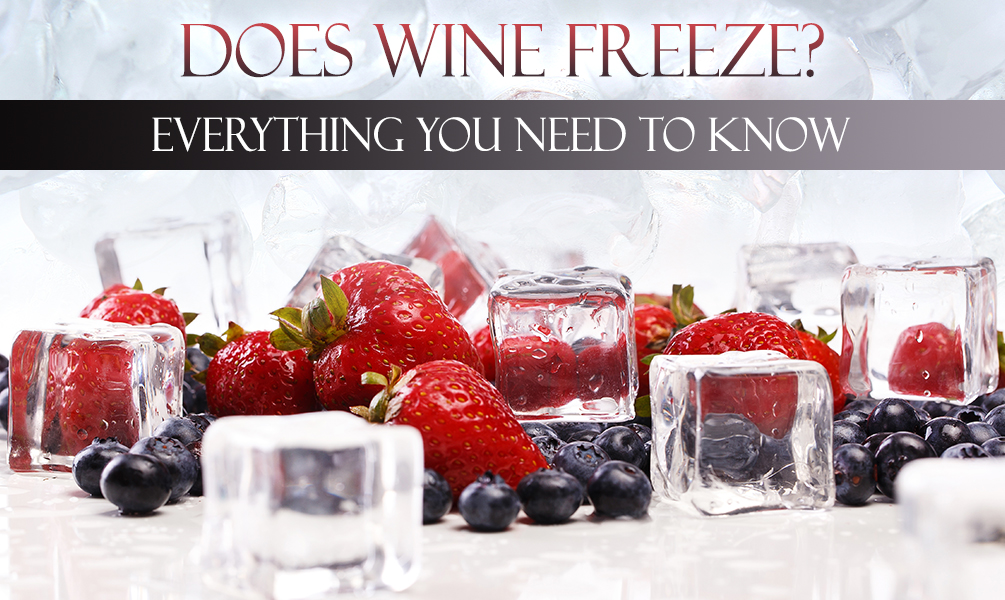
In a sophisticated affair like wine, it is natural for any wine lover to come across age-old questions and mind-boggling misconceptions. One such question that has turned into a slushy concern for many wine enthusiasts these days is whether wine can freeze or not.
Now the idea of freezing wine is itself intriguing and creates a tug of war pitting wine snobs, with some in favor and others against it. So, in this blog, we will explore the frosty wine query “Does wine freeze?”. Whether you are planning to preserve your favorite wine bottle, quickly chill it, or boost your culinary skills, we have got you covered.
This Wine Blog Uncovers:
We receive these inquiries from our users, and we have tried to answer all queries our users have about whether wine can be frozen and how to store it
- Can You Freeze Wine?
- At What Temperature Does Wine Freeze?
- Which Factors Determine a Wine’s Freezing Point?
- Can Wine Freeze In The Freezer?
- How Long Does It Take For Wine To Freeze?
- Is Wine Ruined If It Freezes?
- Is It Okay To Freeze Wine?
- Can You Freeze Wine For Cooking?
- How To Freeze Wine For Cooking
- What Happens If You Freeze Wine?
- How To Prevent Wine From Spoiling During Freezing?
- Is Freezing The Best Way To Chill Wine?
Can You Freeze Wine?
The answer to ‘can wine be frozen’ is a solid yes. Wine can freeze.
The fact that one can freeze wine can sound surprising to many casual drinkers, as there is a common misconception that alcoholic drinks don’t freeze. But when exposed to a low enough temperature for a considerable duration, any alcoholic drink can freeze, be it wine, vodka, tequila, rum, or gin.

At What Temperature Does Wine Freeze?
The freezing point of wine falls within the range of 21.2° to 17.6° Fahrenheit (-6 to -8° Celsius), with an average of 22° Fahrenheit (-5.5° Celsius). And the freezing point of wines is not fixed because each wine has its own unique composition of solutes, collectively determining its freezing point.
Which Factors Determine a Wine’s Freezing Point?
Each type of wine, whether it is a crisp chardonnay or a bold shiraz, possesses a distinct composition that defines its individuality. The key solutes in a wine that influence its freezing point are:
- Alcohol: The freezing temperature of wine is significantly influenced by its alcohol content, as alcohol acts as a solvent and reduces its freezing point. With ABV (alcohol by volume) levels ranging from 8% to 15%, wines with lower alcohol content tend to have a higher freezing point, and vice versa.
In order to convey the value of moderation to folks, the knowledgeable experts at the University Of Illinois have compiled a chart showing freezing points based on ethanol percentage. In the context of wines, ethanol and alcohol are used synonymously. Here’s the chart:
This chart precisely reflects the inverse relationship between a liquid’s ABV level and its freezing point. Did you now realize why your favorite vodka, gin, or whisky is harder to freeze than wine? Yes, it’s all a tipsy clash!
- Sweetness: A wine’s freezing point is also influenced by its sweetness level, as sugars act as "cryoprotectants," a substance that hinders the process of freezing. So, wines with higher sugar levels, such as dessert wines, will have a lower freezing point than wines on a drier note.
- Other Solutes: Apart from alcohol content and sugar levels, other solutes in wine that can influence its freezing point are levels of acidity, salts, tannins, and dissolved gasses.
The presence of these solutes in wine disrupts the arrangement of water molecules in wine, making it harder for ice crystals to form amid freezing. Higher levels of acidity, salts, tannins, and dissolved gasses in wine lower its freezing point, and vice versa.
Can Wine Freeze In The Freezer?
Indeed, wine can freeze in the freezer. And when we say freezer, we are not referring to advanced ones used by science geeks in labs but household ones that are properly installed in our kitchen spaces.
The temperature of a standard kitchen freezer hovers around 0°F (-18°C), making it possible for most wines to freeze. Their freezing points typically fall in the range of 21.2° to 17.6° F (-6° to -8° C). Thus, if you have ever wondered, "Does wine freeze in the freezer?" or pondered, "Will wine freeze in the freezer?", The answer is yes.
How Long Does It Take For Wine To Freeze?
In a standard kitchen freezer, wine can take approximately 5 hours to freeze. Now there is no fixed time window in which wines can freeze, as we already discussed how each wine has a different freezing point with respect to its unique composition.
Wines with higher levels of solvents will have a lower freezing point and may take longer to freeze. On the other hand, lower levels of solvents will have a higher freezing point and may freeze sooner.
Is Wine Ruined If It Freezes?
There are a few downfalls to freezing wine, but that does not necessarily mean that you will ruin your wine if you freeze it once. There have been fun party instances where celebrants mistakenly froze their wine, unfroze it, and still enjoyed it with full zeal. Only if the wine bottle has cracked or been left open in the freezer for months should you consider it a slushy heartbreak.
Is It Okay To Freeze Wine?
Freezing wine is not a big deal and is a safe storage and chilling option when done correctly for a short period of time. Make sure that you do not partake in wine freezing incorrectly or for a longer period, as you can end up facing breakage of the bottle, alteration in the wine, or both.
Can You Freeze Wine For Cooking?
Yes, one can absolutely freeze wine for cooking. Frozen wine is not just an efficient way to use leftovers or a bit of oxidized wine; it is an ideal culinary expedition these days. From wine slushies to popsicles, sorbet, granita, and more, there are beautiful ways to garnish and blend wine’s goodness with robust flavors out there.
How To Freeze Wine For Cooking?
The most friendly way to freeze wine for cooking is to use ice trays. Each cube measures around two tablespoons, or about an ounce of wine, which makes it easy for measurement. In addition, the ice trays make it easy to defrost the frozen wine and also eliminate the fear of breaking that comes with glass bottles.
What Happens If You Freeze Wine?
We know that wine can freeze but what follows up? What can happen to a wine when it is left for long into a frosty milieu of a freezer? Let's find out.
- Sedimentation: Exposure to freezing temperatures can alter a wine's flavor by making its tannins and pigments precipitate and settle down at the bottom as sediment. This scenario is mostly seen in frozen red wines and disrupts their visual clarity, mouthfeel, and bouquet later on.
- Flavor Alterations: When wine freezes, the water within it expands as it turns into ice. This expansion disrupts the actual balance between the wine’s components, causing muting of some flavors, a loss of aromatic complexity, as well as texture and mouthfeel changes.
- Potential Bottle Breakage:As aforementioned, wine expands upon freezing. This expansion of the wine can put pressure on the bottle, potentially causing it to crack or break. It is even more concerning in the case of sparkling wines, which expand further with the loss of carbonation.
How To Prevent Wine From Spoiling During Freezing?
Preventing wine from spoilage during freezing is not a daunting task. You simply have to make your wine free of any conflict with its environment, which is obviously icy-cold.
- Pick the right containers: Use plastic containers or freezer-safe bags to freeze wine. Unlike glass bottles, they will easily sustain the pressure of water expansion and won’t break at all.
- Eliminate air: As air exposure can noticeably alter a wine’s quality, make sure to remove excess air from the wine container and seal it tightly. This will also protect the wine from unforeseen spillage.
- Store at a consistent temperature: Make sure to freeze your wine at a consistent temperature, ideally 15°F (-9°C). Constant fluctuations will cause repeated contractions and expansions, a major threat to wine’s flavor and quality.
- Do not Store For Too Long: If you are freezing wine for storage purposes, it is recommended not to exceed three months.
- Thaw the Wine Slowly: When you are ready to enjoy your frozen wine, thaw it slowly, as a rapid temperature shift can hamper the wine’s quality. You can do it by refrigerating the frozen wine overnight.
- Consume the Wine Quickly: Once your wine is thawed, consume it within a few days, as it is advisable.
Is Freezing The Best Way To Chill Wine?
On a personal note, freezing is not the best way to chill wine. Though it can rapidly cool the wine, the stakes are high with the potential for breaking, the wine’s quality dropping, and whatnot.
The best way to chill a wine bottle is to place it in an ice bucket with ice and water. If you are interested in further exploration, do not miss our latest blog titled "Guide To Serving Champagne at the Right Temperature"
Let’s Defrost The Conclusion
Up until now, ‘Can wine freeze?’ has been our most beloved icebreaker. We loved penning down this blog for you and delving together into the jaw-dropping depths of the wine world.
Whether you wish to freeze your wine bottle for storage, quick cooling, or a mouth-melting slushy adventure, we are delighted to keep you covered. From 1st to 12th, there is an option to zoom in on the particulars of your glacial vinous journey!















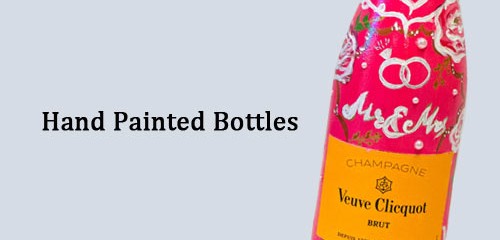
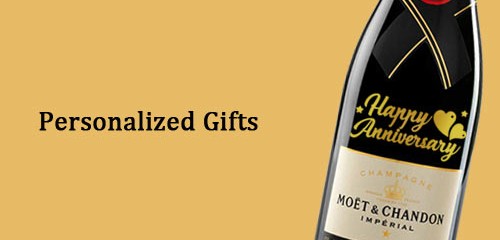
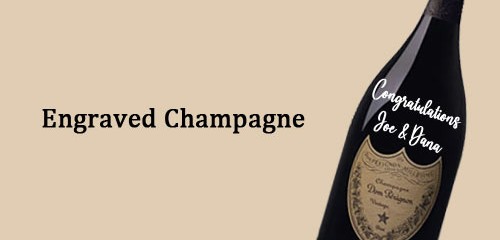


























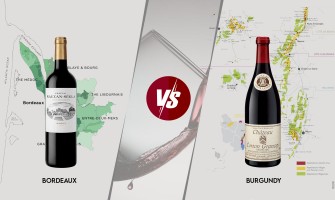

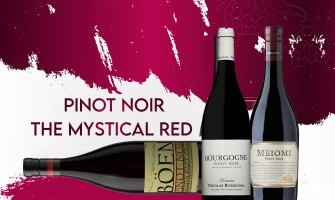

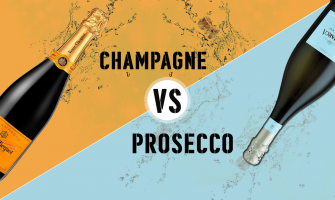







Leave a Comment